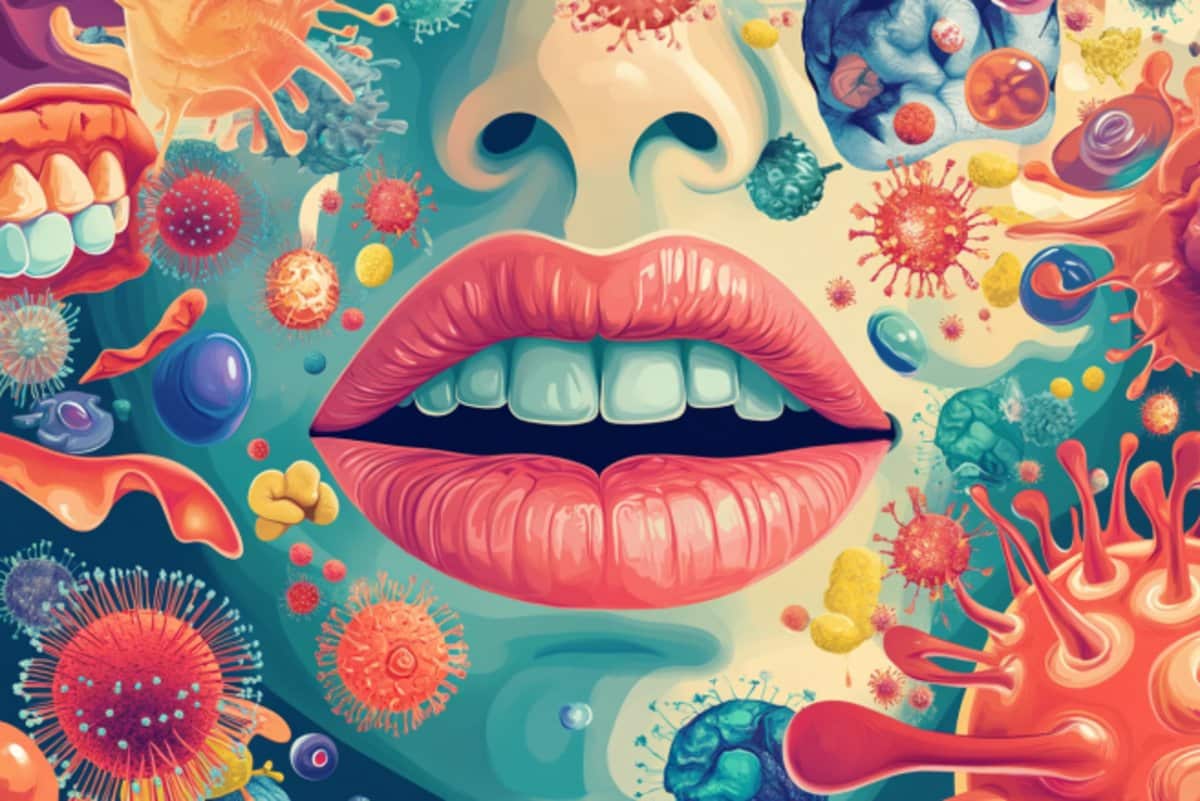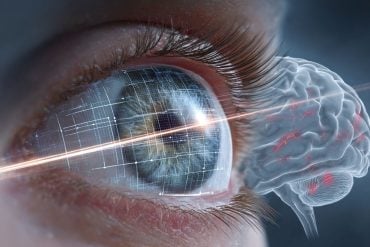Summary: A new study reveals that lower diversity of microbes in the mouth is associated with greater symptoms of depression. Researchers analyzed data from over 15,000 U.S. adults, comparing their mental health surveys with saliva samples to assess microbial diversity.
The findings show that people with less diverse oral microbiomes were more likely to experience depression, even after accounting for factors like smoking and dental care. While the direction of this link is still unclear, the study suggests the oral microbiome may one day be used to help diagnose or treat mood disorders.
Key Facts:
- Microbial Diversity Matters: People with lower oral microbiome diversity showed more depressive symptoms.
- Lifestyle Factors Influence Microbes: Smoking, drinking, and dental care affected the depression-microbiome link.
- Diagnostic Potential: With further research, oral bacteria could serve as biomarkers for depression.
Source: NYU
A rich and varied mix of microbes in the mouth, particularly bacteria, is not only important for our oral health, but may hold clues for other conditions.
A new study led by researchers at NYU Rory Meyers College of Nursing finds that a lower diversity of microbes in the mouth is associated with depression.
The mouth is home to between 500 billion and 1 trillion bacteria—the second-largest community of microorganisms in our bodies, after the gut.
A growing number of studies point to the connection between the oral microbiome and our overall health, from diabetes to dementia, a relationship thought to be driven by inflammation and disruptions to the immune system.
Credit: Neuroscience News
A recent study in mice found a potential link between depression and the diversity of bacteria in the gut, but less is known about the connection between the oral microbiome and depression.
“Having a better understanding of the relationship between the oral microbiome and depression could not only help us learn about the mechanisms underlying depression, but could contribute to the development of new biomarkers or treatments for mood disorders,” said Bei Wu, vice dean for research at NYU Rory Meyers College of Nursing and the senior author of the study, published in the journal BMC Oral Health.
To explore the connection between the oral microbiome and depression, the researchers examined survey and biological data from the National Health and Nutrition Examination Survey (NHANES), conducted by the Centers for Disease Control and Prevention.
Using data from more than 15,000 US adults ages 18 and older collected between 2009 and 2012, the researchers compared questionnaires measuring symptoms of depression with saliva samples. Gene sequencing was used to identify the microbes in the saliva and measure the diversity of the oral microbiome.
The researchers found that people with less diversity in their oral microbiomes were more likely to have symptoms of depression. Additional analyses showed that smoking, drinking, and dental care—all of which can change the makeup of bacteria in the mouth—influenced the relationship between the oral microbiome and depression.
These findings suggest that, with more research, the oral microbiome could potentially be used to diagnose or treat depression. However, based on this study, it’s not clear whether the diversity of microbes in the mouth influences depression or if depression leads to changes in the oral microbiome—or if there’s a bidirectional relationship between the two.
“It’s possible that the oral microbiome influences depressive symptoms through inflammation or changes to the immune system. Conversely, depression can drive changes including dietary intake, poor oral hygiene, increased smoking and drinking, or the use of medications—all of which have the potential to alter the oral microbiome,” said Wu.
“We need more research to understand the direction and underlying pathways of this relationship.”
“This work is part of a broader effort to understand how the oral microbiome influences not only mental health, but also cognitive decline and the onset of dementia,” she added.
Additional study authors include Xichenhui Qiu, Ting Xu, Yiqing Huang, Changning Wei, and Lina Wang.
About this microbiome and depression research news
Author: Rachel Harrison
Source: NYU
Contact: Rachel Harrison – NYU
Image: The image is credited to Neuroscience News
Original Research: Open access.
“Relationship between depression and oral microbiome diversity: analysis of NHANES data (2009–2012)” by Bei Wu et al. BMC Oral Health
Abstract
Relationship between depression and oral microbiome diversity: analysis of NHANES data (2009–2012)
Background
While the association between the gut microbiome and depression is well studied, the association between the oral microbiome and depression is less well characterized.
Methods
This cross-sectional study analyzed the association between depression and diversity of oral microbiome using data from the 2009–2012 National Health and Nutrition Examination Survey (NHANES). The gene sequencing of 16S ribosomal RNA was adopted for the profiling of oral microbiome.
Alpha diversity, quantified by the observed number of amplicon sequence variants (ASVs), and beta diversity, assessed using Bray–Curtis dissimilarity, were evaluated to represent oral microbiome diversity. Depressive symptoms were measured by the Patient Health Questionnaire-9 (PHQ-9) scale, with alpha diversity as the primary predictor. Weighted logistic regression was employed to examine the relationship between depression and microbial alpha diversity.
Threshold effect analysis was performed to explore potential nonlinear relationships between the observed ASVs and depression. Subgroup analysis indicated that smoke, excessive alcohol consumption, and oral treatment influenced the association between oral microbiology and depression, with interaction effects observed across gender and racial groups.
Beta diversity differences were evaluated using Bray–Curtis dissimilarity and visualized via non-metric multidimensional scaling (NMDS).
Results
A total of 15,018 participants were included, with an average age of 42.25 ± 15.2 years. In the fully adjusted model, the alpha diversity of oral microbiome was significantly negatively correlated with depression (OR = -0.51, 95% CI: -0.79—-0.23, P = 0.003). Threshold analysis also revealed a nonlinear association in this relationship, with a significant inflection point as Log10ASVs of 2.32.
Furthermore, beta diversity of the oral microbiome differed significantly between the normal and depression groups (p = 0.001). Sensitivity analyses showed that the relationship between depression and oral microbial diversity observed in this research was particularly pronounced among non-Hispanic Whites (OR = 0.16, 95% CI: 0.07–0.35) and men (OR = 0.14, 95% CI: 0.06–0.30). Additionally, significant differences in oral microbiome beta diversity were observed between the normal and depression groups (p = 0.001).
Conclusions
The findings suggest that the diversity of oral microbiome is negatively correlated with depressive symptoms. Hence, oral dysbiosis may serve as a therapeutic target or biomarker of depression. However, the underlying mechanisms require further investigation.








